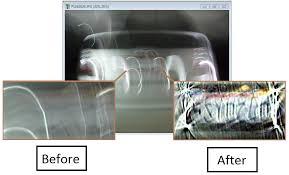In today’s interconnected digital landscape, cloud computing has become an indispensable part of business operations. However, with the growing reliance on the cloud comes the pressing need for robust security measures to protect sensitive data from cyber threats. Cognitech, a leading cloud services provider, prioritizes the safety of their clients’ data through a comprehensive cloud security framework. In this article, we will explore the key components of Cognitech’s cloud security approach, ensuring that users can confidently stay safe in the cloud.
Data Encryption and Access Controls
At the heart of Cognitech cloud security framework lies the implementation of stringent data encryption and access controls. To safeguard data from unauthorized access, both in transit and at rest, Cognitech utilizes state-of-the-art encryption protocols. This ensures that even if data is intercepted, it remains indecipherable to malicious actors. Moreover, access controls are carefully configured to permit only authorized personnel to access specific data, reducing the risk of internal breaches.
Multi-Factor Authentication (MFA)
Cognitech recognizes that password-only authentication is no longer sufficient to thwart sophisticated cyber attacks. To fortify user access, Cognitech enforces Multi-Factor Authentication (MFA) across all accounts. MFA requires users to provide multiple forms of identification, such as a password, a fingerprint scan, or a one-time verification code sent to their mobile device. This extra layer of security significantly minimizes the risk of unauthorized access, even if login credentials are compromised.
Regular Security Audits and Penetration Testing
In the ever-evolving landscape of cyber threats, continuous evaluation of security measures is imperative. Cognitech conducts regular security audits and penetration testing to proactively identify vulnerabilities and weaknesses in their cloud infrastructure. By simulating real-world attacks, they can address potential risks and enhance their security protocols promptly.
Disaster Recovery and Data Backups
Cognitech understands that data loss can be detrimental to any organization. To ensure business continuity and data integrity, they have a robust disaster recovery plan in place. Regular data backups are performed and securely stored in off-site locations, guaranteeing that critical information can be restored in the event of an unforeseen incident.
Employee Training and Awareness
Human error remains one of the leading causes of security breaches. Cognitech invests in comprehensive employee training and awareness programs to educate their workforce about the latest cyber threats and security best practices. By fostering a security-conscious culture, Cognitech empowers its employees to be vigilant and proactive in detecting and mitigating potential security risks.
Conclusion
As businesses increasingly migrate to the cloud, ensuring data protection becomes a top priority. Cognitech’s cloud security framework is designed to provide clients with a safe and secure cloud environment. Through data encryption, access controls, Multi-Factor Authentication, regular security audits, disaster recovery, and employee training, Cognitech demonstrates its unwavering commitment to safeguarding sensitive information.
By understanding Cognitech’s cloud security framework, users can rest assured that their data is shielded from cyber threats, enabling them to harness the full potential of cloud computing with confidence and peace of mind. Embracing a proactive approach to security, Cognitech sets the standard for cloud service providers, ensuring that businesses can stay safe in the cloud without compromising on efficiency and productivity.


